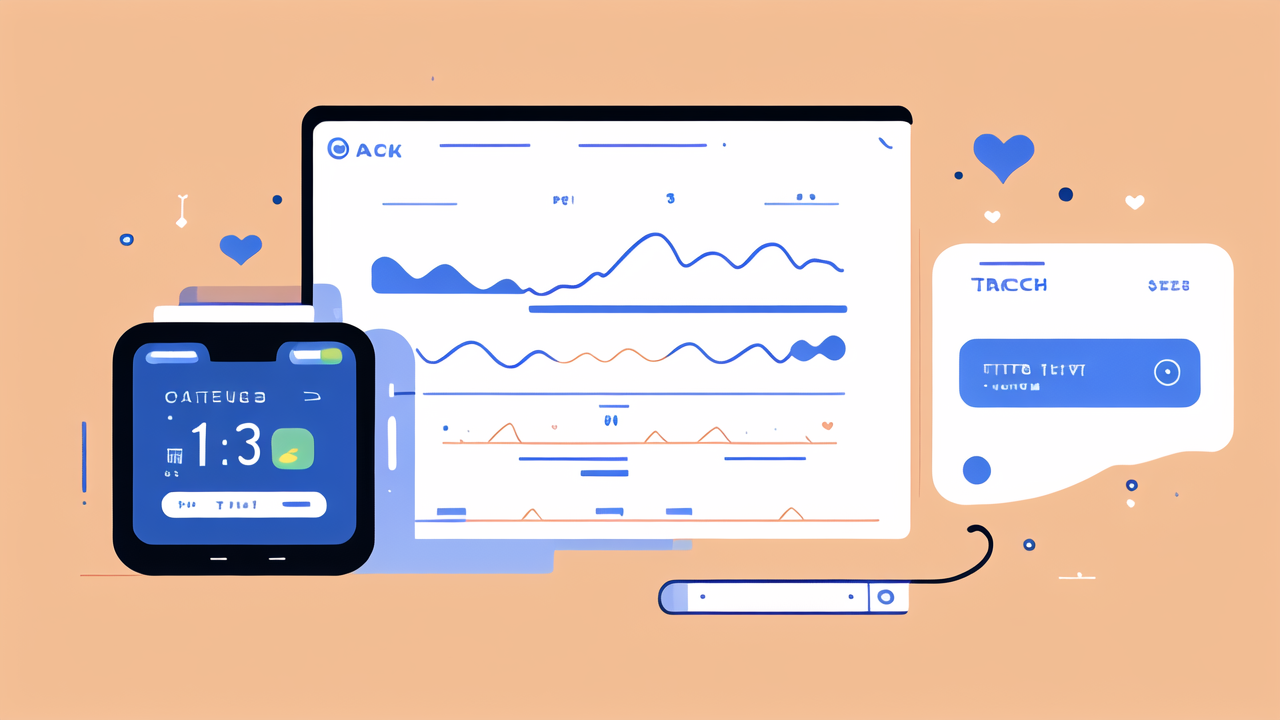Understanding the Basics of Fitness Trackers
The Role of Fitness Trackers in Daily Life
Fitness trackers have become essential tools in our daily lives. They help us monitor our physical activity and health. These devices count steps, track sleep, and measure heart rate. Many people use them to set and reach fitness goals.

Trackers can motivate us to move more and be more active. They provide data that helps us understand our habits. This information can lead to better health choices. Some trackers even remind us to stand up or take breaks.
For many, checking their tracker is now part of their daily routine. It's like checking the time or weather. Trackers can also connect to smartphones, making data easy to access and analyze.
Key Features to Look for in a Fitness Tracker
When choosing a fitness tracker, consider these key features:
- Step counting: Accurate step tracking is crucial.
- Heart rate monitoring: This helps measure exercise intensity.
- Sleep tracking: Understand your sleep patterns and quality.
- Water resistance: Important for swimmers or those who sweat a lot.
- Battery life: Longer battery life means less charging.
- GPS: Useful for runners and cyclists to track routes.
- Smartphone notifications: Some trackers show calls and messages.
- App compatibility: A good app makes data more useful.
Look for trackers that match your needs. If you're a swimmer, water resistance is key. For runners, GPS might be essential. Consider which features matter most to you.
Analyzing the Top Fitness Trackers in the Market
How Fitness Trackers Compare to Traditional Watches
Fitness trackers and traditional watches serve different purposes. Watches primarily tell time. Trackers focus on health data. But the line between them is blurring.

Fitness trackers often have basic time-telling functions. Many now look like regular watches. This makes them more stylish for everyday wear. However, they may lack the elegance of high-end watches.
Traditional watches excel in style and durability. They often last for decades. Fitness trackers, being tech devices, may need replacing sooner. Watches don't need charging, while most trackers do.
Fitness trackers offer health insights that watches can't. They track steps, heart rate, and sleep. This data can be valuable for health-conscious users. Some people choose to wear both a watch and a tracker.
Smart Watches vs. Fitness Trackers: A Comparative Overview
Smart watches and fitness trackers share many features, but they're not the same. Smart watches are mini-computers for your wrist. They offer more functions beyond fitness tracking.
Key differences include:
- Screen size: Smart watches usually have larger screens.
- Apps: Smart watches can run various apps, like maps or music players.
- Calling: Many smart watches allow calls and texts.
- Battery life: Fitness trackers often last longer between charges.
- Price: Smart watches are typically more expensive.
- Fitness focus: Trackers are more specialized for fitness data.
Fitness trackers excel at health monitoring. They're often more accurate for step counting and heart rate. Smart watches offer more general features. They're good for those who want a mix of fitness and smart functions.
The Best Fitness Trackers for Different Users
Tailoring Fitness Trackers for Beginners and Professionals
Fitness trackers come in various types to suit different users. Beginners might prefer simpler devices. These focus on basic stats like steps and calories. They're often more affordable and easy to use.

For beginners, look for:
- Easy-to-read displays
- Simple app interfaces
- Long battery life
- Basic tracking features
Professionals or serious athletes might want more advanced features. These could include:
- Detailed workout analysis
- Advanced heart rate monitoring
- GPS for route tracking
- Water resistance for swimming
Professional-grade trackers often offer more data. They might track VO2 max or recovery time. Some can even guide workouts or provide training plans. These features help serious athletes improve performance.
Evaluating Cost vs. Value in Fitness Tracking Devices
When choosing a fitness tracker, consider both cost and value. Cheaper trackers might seem appealing. But they may lack important features or accuracy. More expensive devices offer more, but you might not need all their features.
Consider these factors:
- Your fitness goals: Do you need basic tracking or advanced features?
- Usage frequency: Will you use it daily or just occasionally?
- Durability: Cheaper trackers might not last as long.
- Brand reputation: Well-known brands often offer better support.
- App quality: A good app can make a big difference in usability.
Sometimes, spending more upfront can save money in the long run. A durable, feature-rich tracker might last years. It could motivate you more, leading to better health outcomes.
However, an expensive tracker isn't always necessary. If you only need basic features, a mid-range option might be perfect. The best value comes from a tracker that fits your needs without unnecessary extras.
Remember, the most valuable tracker is the one you'll actually use. Choose one that fits your lifestyle and motivates you to stay active. This way, you'll get the most value from your investment in your health.




Leave a comment
This site is protected by hCaptcha and the hCaptcha Privacy Policy and Terms of Service apply.